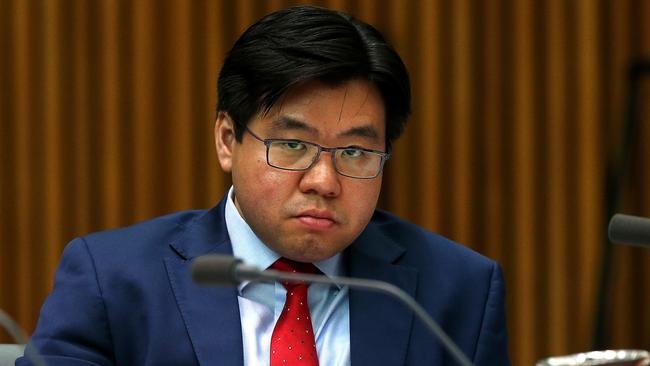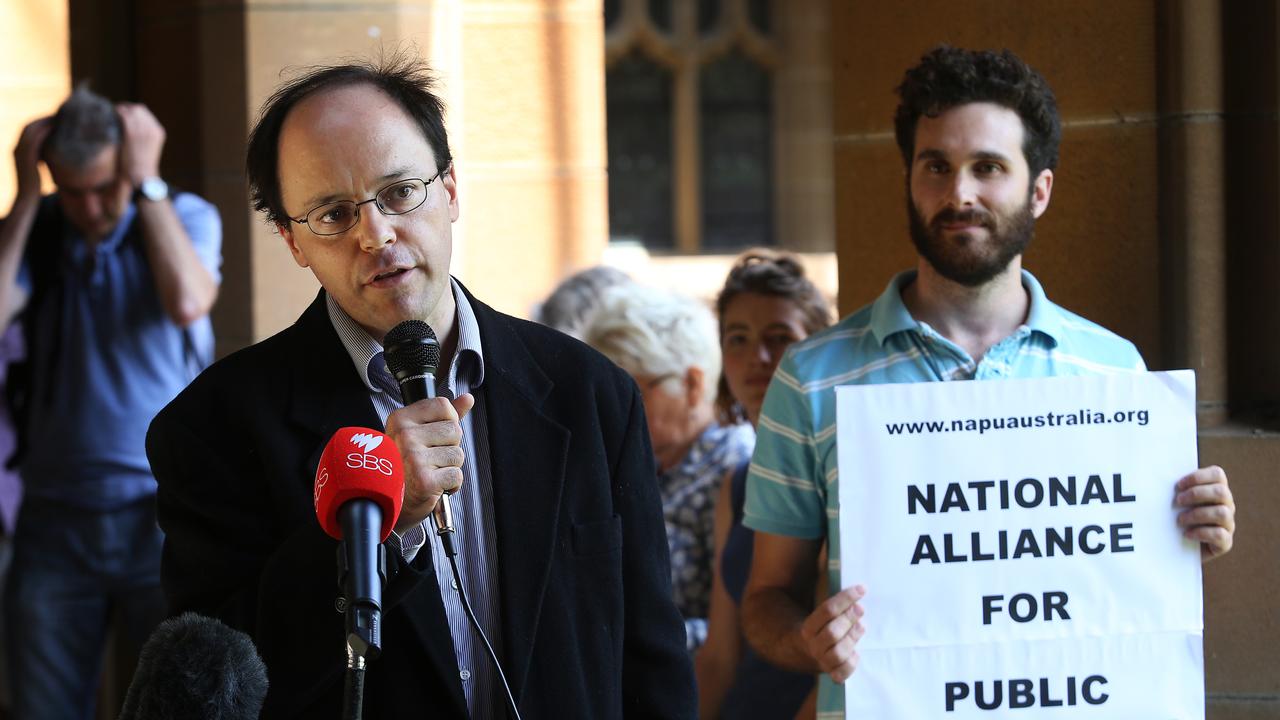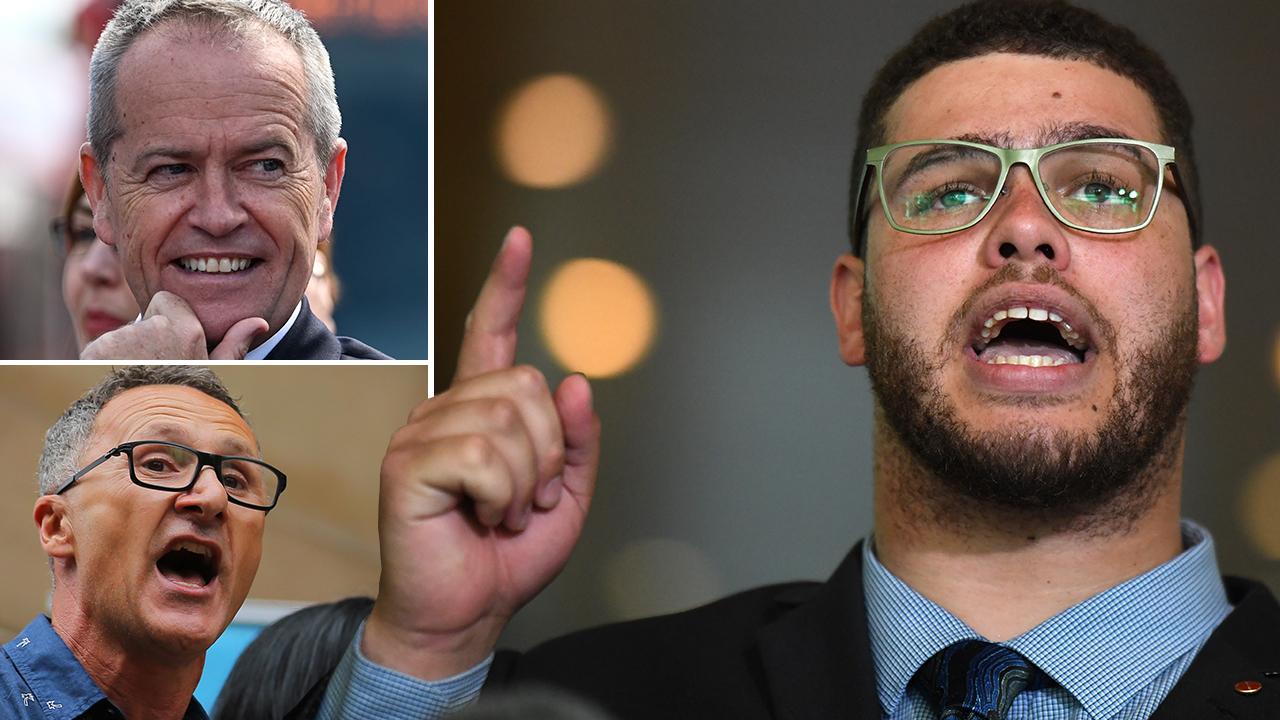
“Nearly all men can stand adversity,” wrote Race Discrimination Commissioner Dr Tim Soutphommasane of the Australian Human Rights Commission last year, citing Abraham Lincoln. “But if you want to test a man’s character, give him power.”
Proving the adage that courage is not absence of fear but the overcoming of it, Soutphommasane boards a plane several times a week, despite dreading the flight attendants will not attempt to pronounce his surname when they check his boarding pass. “It says that they’re not even bothered to treat me with respect,” said the triggered 35-year-old last year.
To his credit he persists, and we only hope that the flight attendants treated him with respect when he flew last month to Geneva, Switzerland, to present to the United Nations Committee on the Elimination of Racial Discrimination.
Text of my statement to the UN Committee on the Elimination of Racial Discrimination https://t.co/G2Vdm9o6IU #AusCERD pic.twitter.com/xvEmJU73jL
— Tim Soutphommasane (@timsout) November 28, 2017
So how did Australia stack up?
Unfortunately, the AHRC’s 64-page report was not a rosy one. There are “some clear indications that racial intolerance and racial discrimination are on the rise,” said Soutphommasane. “It is especially concerning that, as in many other countries, extreme nationalist organisations have grown in prominence within public debates about race and immigration.”
The Committee, in its subsequent assessment of Australia’s compliance with anti-racism obligations, raised concerns that “expressions of racism, racial discrimination, and xenophobia, including in the public sphere and political debates as well as in the media, are on the rise.”
Among the Committee’s many recommendations was that Australia “put an end to racist hate speech expressed in the print and electronic media, and encourage the media to adopt a code of good conduct containing provisions against racism and racial discrimination.” Of note, it does not cite any examples of the so-called racist hate speech that, by insinuation, is replete in Australian media. Even the left-leaning Sydney Morning Herald remarked that the recommendations amounted to “effectively censoring aspects of the media and public commentary.”
A gobsmacking over-reaction by the Committee you may think, but that is nothing compared to the measures it recommends in respect to boosting section 18C of the Racial Discrimination Act, which makes it unlawful to offend, insult, humiliate or intimidate another person on the basis of their race, colour, or national or ethnic origin.
The Committee, you see, is “concerned about the limited number of racial discrimination cases brought before courts”. Limited number? Interpreting that in negative terms is proof that nothing terrifies a professional outrage merchant more than a downturn in business. To address this, the Committee recommends Australia “remove persistent barriers in access to justice by victims of racial discrimination, including by reversing the burden of proof in civil proceedings involving racial discrimination.”
You read that correctly. As it stands, respondents can be expected to spend tens of thousands of dollars in legal fees to defend themselves against a spurious 18C action, but at least the plaintiff bears the burden of proof. But if the United Nations has its way, respondents will be presumed liable unless they can refute the plaintiff’s accusation. Can you picture the human rights lawyers rubbing their hands together? The potential for abuse is enormous.
So what does the AHRC say of this recommendation? Although Soutphommasane did not address it specifically, he commented favourably on the Committee’s report. “I welcome its recommendations on data, anti-racism & the RDA, political discourse and Indigenous peoples,” he tweeted last week.
The UN Committee on the Elimination of Racial Discrimination has released its ‘concluding observations’ on Australia. I welcome the Committee’s recommendations on data, anti-racism, political discourse and the RDA, and Indigenous peoples https://t.co/h1ePUYlcNP
— Tim Soutphommasane (@timsout) December 8, 2017
It would be an understatement to say the AHRC has poor form in observing procedural fairness in respect to 18C cases, particularly the infamous Queensland University of Technology matter. In that case the AHRC took 14 months to inform the student respondents that they were the subject of a complaint. But the AHRC’s shortfalls extend beyond abrogation of responsibility, and reveal a perceived bias against respondents.
“Not to put too fine a point on it,” said Soutphommasane in September, “but we must be prepared to say that if people don’t wish to be called racists or bigots, they shouldn’t blame others; they should begin by not doing things that involve racism or bigotry.” This attitude implies a belief that an accusation of such behaviour amounts to proof. Could this really be the same Soutphommasane who in 2010, when he was a columnist for this newspaper, wrote “Let’s get one thing clear. In a civilised society we must uphold the presumption of innocence”?
It was a peeved Soutphommasane who spoke of the media reaction to commentator Milo Yiannopoulos last week. “Our democracy relies on media to put extremist ideas and politics under scrutiny — there should be robust coverage, not indulgence, of neo-Nazi and white supremacist sympathisers,” he tweeted, along with an accompanying photo of Yiannopoulos.
Our democracy relies on media to put extremist ideas and politics under scrutiny — there should be robust coverage, not indulgence, of neo-Nazi and white supremacist sympathisers https://t.co/i0ziNrrRoH
— Tim Soutphommasane (@timsout) December 8, 2017
Although very cross with most of the Australian media in its coverage, he added he “admired” Jeff Sparrow’s coverage in The Guardian. “Many of those listening to him [Yiannopoulos] were seemingly unremarkable, suburban folks,” wrote Sparrow, peg on nose.
Nevertheless we should take heart in Soutphommasane’s new-found support for robust media coverage. It is a pity though he had no enthusiasm for this when the late artist Bill Leak last year depicted the harsh reality of dysfunctional indigenous families. In fact, he condemned Leak’s cartoon and advertised means by which ‘offended’ people could lodge a complaint under 18C. Despite Soutphommasane’s denial that he was encouraging complaints, a federal parliament joint committee found his remarks “could have been perceived by some as solicitation”.
Likewise, Tim was in a timorous phase in his take on the Sydney western suburbs’ disproportionately high ‘no’ vote in the same sex marriage survey. Protesting last month that “multicultural backgrounds are held to a standard that isn’t necessarily applied to others,” he cited religion rather than ethnicity as the predominant factor in the negative vote. Any religion in particular? He did not say. “In a world that many describe as post-truth or post-factual, our social cohesion is not always well served by jumping to conclusions,” he said with patronising obfuscation. How’s that for robust?
As I wrote last week, what Yiannopoulos represents — the loathing of political correctness and a backlash against identity politics — presents a real threat to those who make a lucrative living out of the outrage industry. It is no coincidence that Soutphommasane, whose salary is $346,250, was one of the first to protest.
As for the UN Committee’s recommendation that the burden of proof be reversed for 18C cases, Soutphommasane must immediately disavow this. After all, he has consistently and successfully argued against the government’s failed attempts to amend 18C, maintaining that “The law in its current form strikes an appropriate balance between freedom of speech and freedom from racial vilification.”
So far he has not done so, instead saying he will raise the UN’s recommendations with the federal government. Let us see if he remains true to his assurance that there is no need to amend 18C. What do you say, Race Discrimination Commissioner? It will be interesting to see your response. As Lincoln said, if you want to test a man’s character, give him power.





To join the conversation, please log in. Don't have an account? Register
Join the conversation, you are commenting as Logout